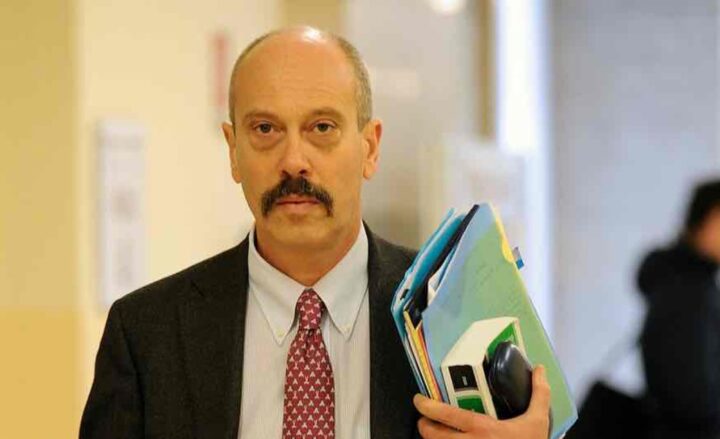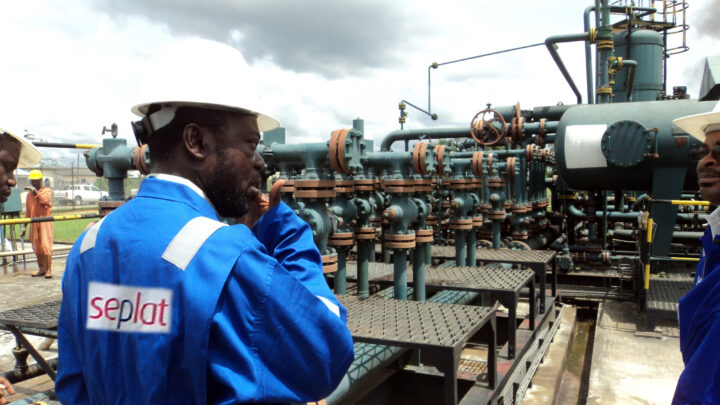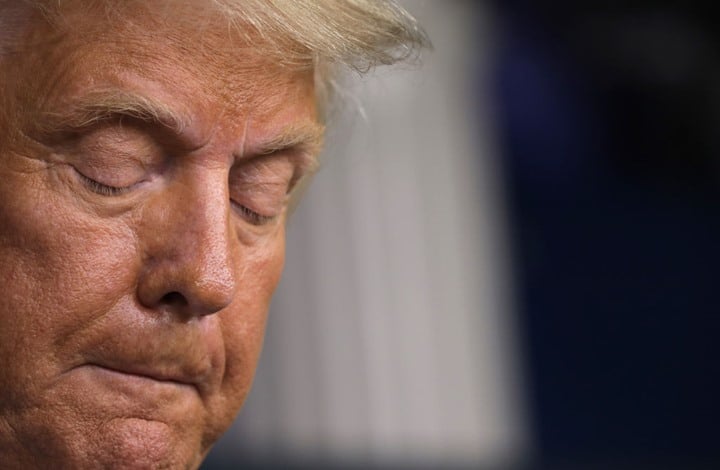‘My friend, where is Anini?’ That was not the kind of question a police chief would expect from his commander-in-chief in front of the media. But that was the question Ibrahim Babangida, military president, asked Etim Inyang, the inspector general of police, in the full glare of media cameras sometime in October 1986.
Clearly embarrassed, Inyang replied: “We shall find him soon.”
The Armed Forces Ruling Council (AFRC) — the highest ruling body in the country then — had just held a meeting to discuss insecurity in the country, with the reign of terror by Lawrence Nomayangbon Anini and his armed robbery gang in Bendel state (now Edo and Delta) getting all the headlines. They were robbing and raping in daylight, led by Anini, who was styled “Robin Hood of Africa” because of the added drama of spraying his notes from his loot on the “masses” after operations. He killed policemen mercilessly.
After the AFRC meeting, it was clear that Inyang’s days were numbered. He was retired as IGP on November 1, 1986 and in came Muhammadu Gambo (whose later added Jimeta to his name as it is customary for northerners to be named after their hometowns). Gambo’s first public statement was: “I will catch Anini very soon.”
Advertisement
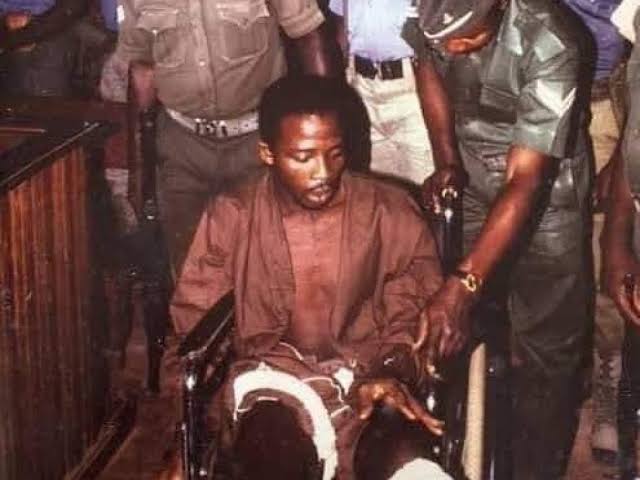
On December 3, 1986 — four weeks after Gambo assumed office — Anini was arrested along with his gang members. They confessed that George Iyamu, a deputy superintendent of police, was working with them, and that he supplied them with logistics, police intelligence reports and weapons. Iyamu was among those executed along with Anini after their trial by Justice James Omo Agege (father of Ovie, current deputy senate president).
Anini’s arrest team was led by a superintendent of police, Kayode Uanreroro, while the commissioner of police was Parry Osayande. But Jimeta, the new IGP who was an intelligence specialist, was ultimately credited with the success of the operation. He would go on to manage a police force that tackled serious crimes — although they were also accused of abusing human rights in the process.
On Thursday, Jimeta bade the world farewell at the ripe of 83. TheCable understands that he died in Abuja after battling an infection.
Advertisement
NIGERIA’S FIRST NSA
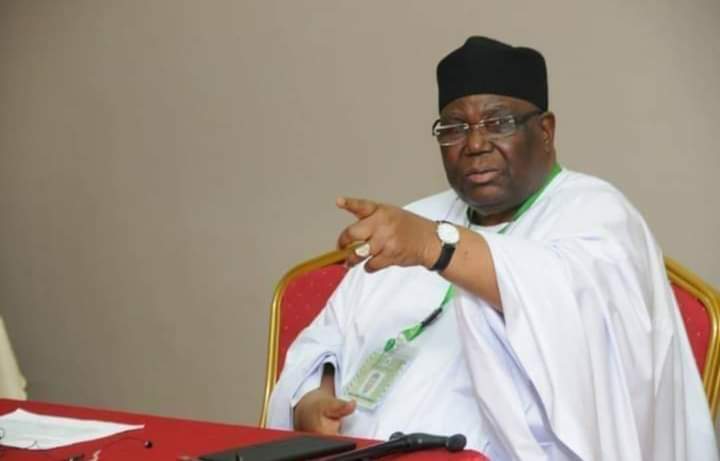
In 1990, Jimeta travelled out of the country. In his absence, the military government announced that “wandering” was not an offence and the police should stop randomly arresting people simply because they were walking outside at odd hours.
On his arrival, Jimeta was asked by reporters what he thought about the order. He was clearly unhappy. He voiced out against it. No long after, he was retired as police IG and appointed national security adviser (NSA). Until then, no such office existed. But Babangida created one.
Jimeta, with a reputable career as a police detective, and beyond his friendship with Babangida, had the experience needed to advise the head of state on security matters. Against his expectations, however, Babangida placed Jimeta’s NSA office under the supervision of Aliyu Gusau who headed the coordinating committee of defence intelligence.
Jimeta would later realise he was with no “schedule” and “office”.
Advertisement
“When Babangida removed me as the IG, he still needed my services as a friend. So, he made me NSA with no schedule and no office. So as NSA, I was operating from my Victoria Island home with no staff,” Jimeta said in an interview.
He then started contacting foreign embassies who have NSAs to explain to him the schedule of NSAs. The NSA office would later become an integral part of Nigeria’s presidency and security architecture
ACCUSED BABANGIDA OF DESTROYING THE POLICE
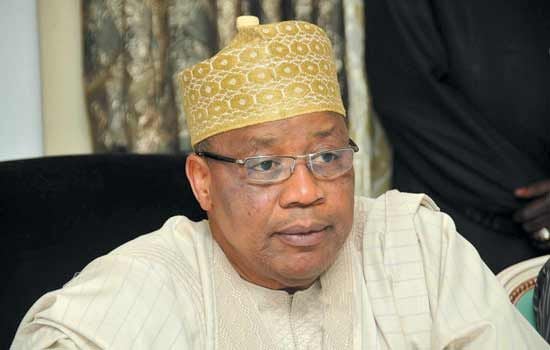
Despite serving as IGP and NSA under Babangida, Jimeta did not have a plain-sailing relationship with his boss. Jimeta said police officers’ salary was 20 percent higher than that of military officers and other civil servants during the first republic, but that things changed when the military took over.
“I must say that while serving with him (Babangida), we had serious differences on the issue of law and order. It is very clear to me that there is a lot of misunderstanding and total ignorance of the establishment of a law and order agency in a democracy,” Jimeta said in an interview with journalists in 2012.
Advertisement
“When the military took over the system of budgeting for the police, the police was destroyed. If you see, throughout the country, what you have as police establishments either as police offices, or housing for the police were provided by the first republic leaders. Nothing has been done for the police since then.”
In another 2010 interview, Jimeta said the creation of other security agencies such as the Federal Road Safety Corps (FRSC) by the military led to the degradation of the police.
Advertisement
“There is the road safety commission, civil defence and so many other security agencies that have sprung up who are active to share in the good deeds and quickly deny any responsibility on anything bad that has happened towards the maintenance of law and order,” he said.
“So, these are some of the aspects of the degradation of the police that has happened that to the extent today we cannot hold the police responsible for anything that has happened because their powers are being eroded as they themselves do not know exactly what to do when the situation calls for it.”
Advertisement
‘POLICE FORCE NO MORE EFFICIENT’
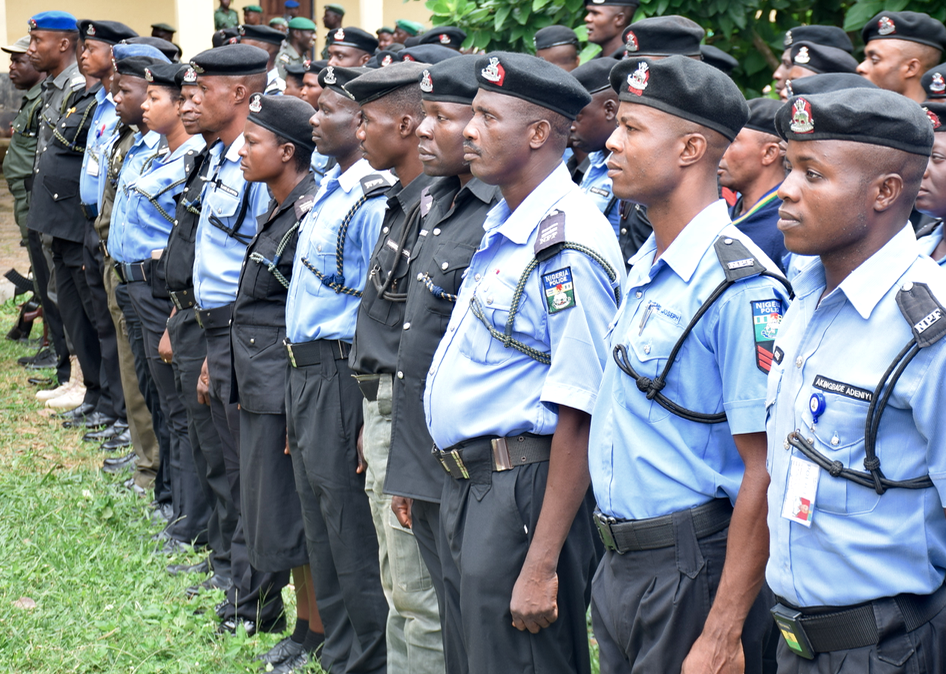
For Jimeta, being a police officer was a thing of pride in the years he joined the force. But, five decades later, Jimeta recounted how the institution became a shadow of itself.
Advertisement
“The police force I joined fifty years ago was a highly trained and motivated one. We were very proud of our profession and we had a lot of support from the public who felt that we were really there for them, to help them,” he said in the 2010 interview.
In his years, he explained how the police were well equipped, had vehicles, laboratory equipment and everything that it took to run a modern police force. Unfortunately, since independence, he said the police have been put along the line of what they call competing demands from other services in Nigeria.
“This has downgraded us and has brought us to where we are today, almost at a standstill,” he said.
“The police force of today is very huge, scattered and uncared for. To have a police force of a highly conscious and civilised society like Nigeria requires a lot of funding and it is one service that deals with what life is all about in the country. People want to see their lives secure, they want to be protected and want to feel happy without anybody molesting them. You cannot achieve this unless you have properly trained, well paid and confident police officers to enforce the laws of the country.”
Jimeta said the force has ended up with a large number of policemen ill funded, badly motivated and drained of their self esteem.
“So, really, the fifty years we are talking about has seen the police force regress from a very efficient and confident police force to what we have today,” he said.
NO ACTION TAKEN ON RECOMMENDATIONS TO REFORM POLICE
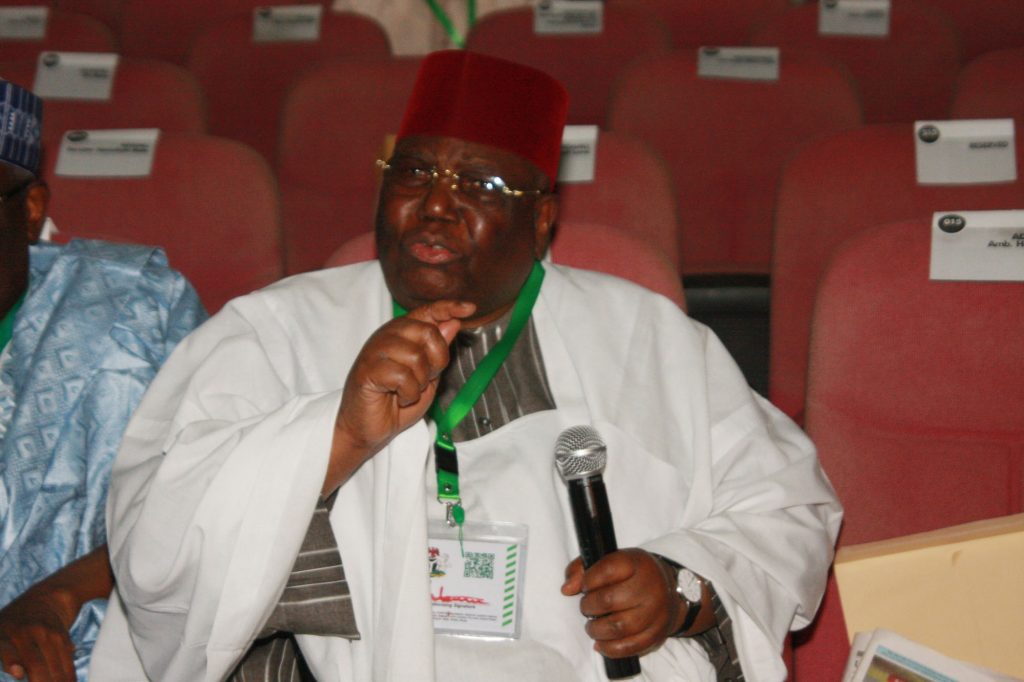
Jimeta, in the interview, accused successive governments of ignoring recommendations on police reforms.
Recommendations are always presented to the government, but implementation has always been an issue, Jimeta lamented.
These recommendations, he said, are meant to be implemented randomly. He said they are put up in the scheme so that there will be positive results.
“So, all these things are really issues that are resting in the hands of the government and they simply haven’t said that there is not enough money. If it were a wise government, they would have looked into the issue and made sure that they made everything available to make sure that the reforms are implemented,” he said.
THREATENED BY ABACHA OVER CALL TO RELEASE OBASANJO
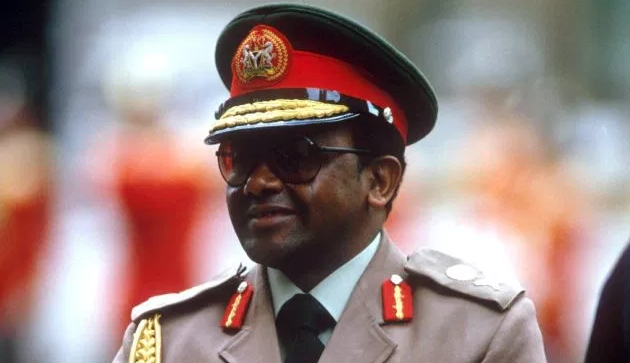
Jimeta said the regime of Abacha came for him after his call for the release of Olusegun Obasanjo, Shehu Musa Yar’Adua and other political detainees. Obasanjo, former head of state, was jailed by the Abacha government. But Gambo said either military or civilian, heads of state must work according to the constitution, and with this belief, he called for the release of the political prisoners.
“I advised the former President Sanni Abacha to release the high profile political detainees like Gen Olusegun Obasanjo, Gen Musa Yar’Adua and other four but the former president refused to do so and instead removed me, to the extent that they were looking for my head,” he said at a National Judiciary Institute (NJI) conference in 2014.
When it appeared the government was ready to go any length to get him, Jimeta went on exile for nine months, leaving his wife and children behind.
UK TRAINED POLICE DETECTIVE
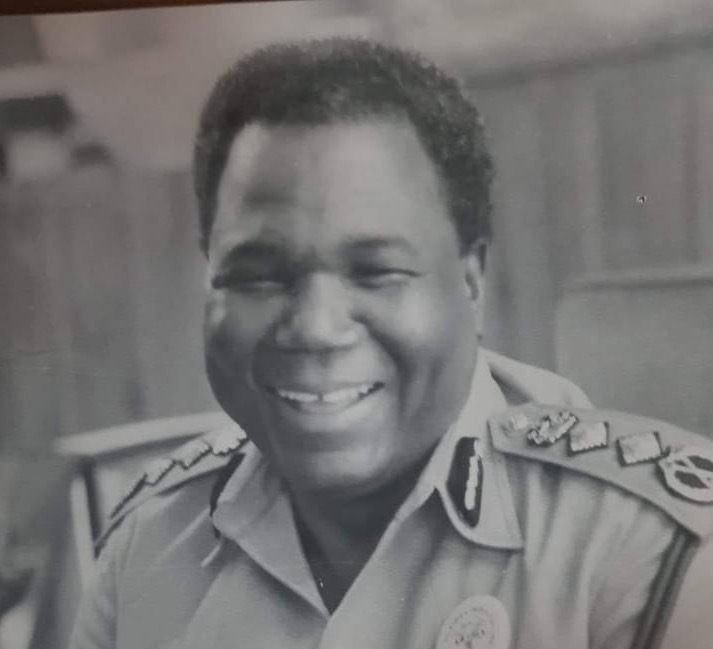
Born on April 15, 1937 in Jimeta in then Gongola state, he began school at Jimeta Elementary School in 1947. He proceeded to Yola Middle School in 1950, and then to Bauchi Provincial Secondary School between 1956 and 1958, and Government College, Keffi, between 1958 and 1959.
In 1959, he attended the Nigerian Police College, Kaduna, and Police College, Ikeja.
In 1962, Jimeta proceeded to the Detective Training School, Wakefield, UK. He also attended Bramhill Police College, UK in 1963. In 1980, he did courses at the International Police Academy, Washington DC, USA; National Police Academy, Cairo, Egypt.
He began his police career as a cadet sub-inspector. In 1963, he was promoted to assistant-superintendent of police (ASP), and became a superintendent of police in 1969. He became commissioner of police in 1977 and served in Lagos, where he became popular for the way he clamped down on armed robbers in the state.
In 1982, he was promoted to assistant inspector-general of police (AIG) and transferred to Force Criminal Investigation Division in Lagos. He became a deputy inspector-general of police (DIG) in 1984 and then IGP in 1986. Jimeta, since retirement, contributed to the discourse on Nigeria’s development, especially as it concerns the police and security.
“He lived for the nation and served with all his strength,” President Muhammadu Buhari wrote about Jimeta in a condolence message.





